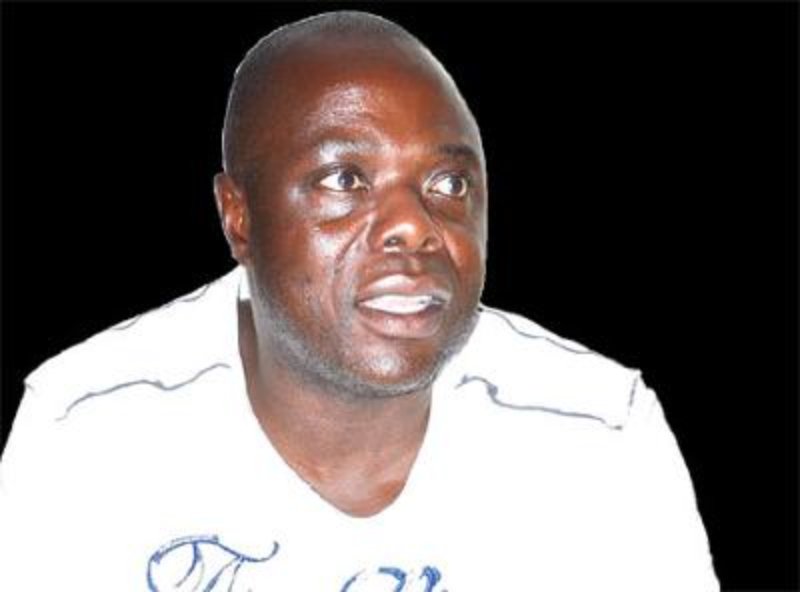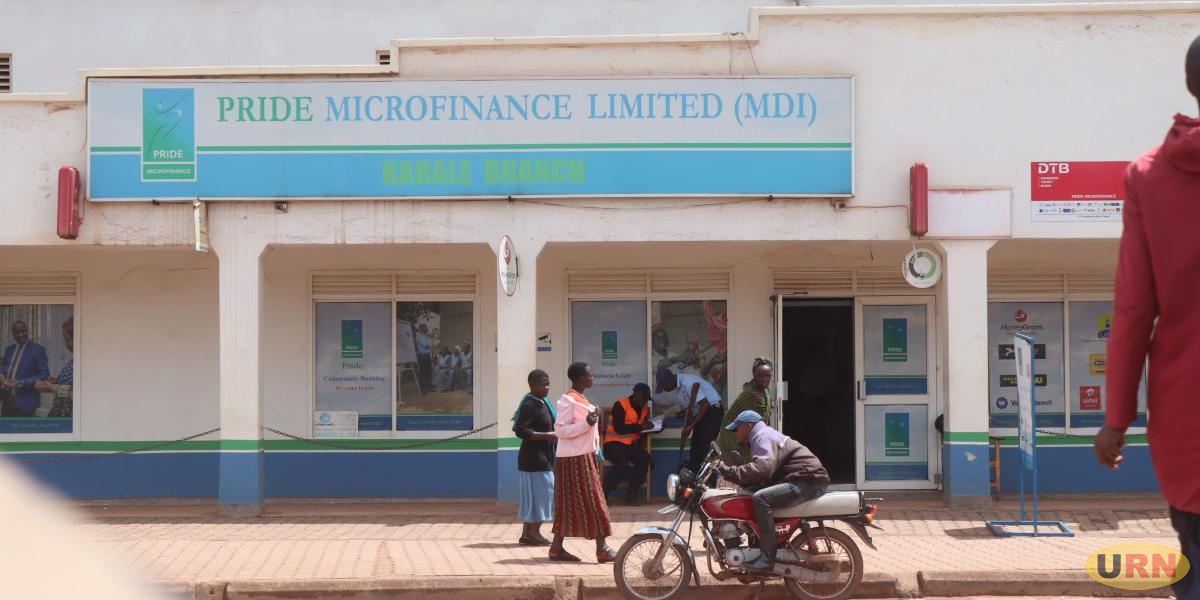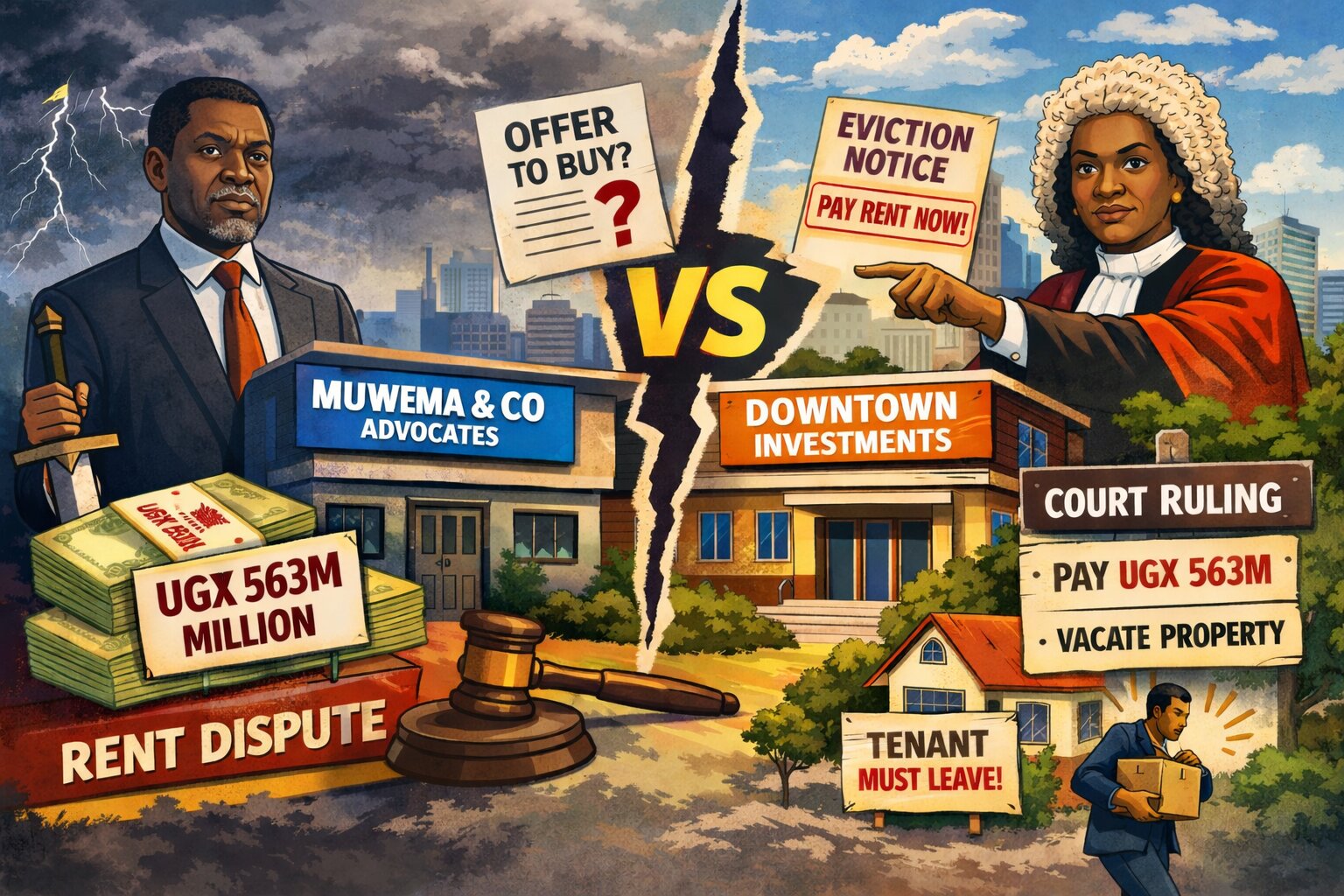Business tycoon, John Ssebalamu, has been awarded Shs 550 million by the High Court after the government unlawfully interfered with 20 parcels of his private land in Rubaga, Kampala, by issuing a “buyer beware” notice and gazetting it for a railway project that was never completed.
The ruling was delivered on September 12, 2025, by Justice Aisha Naluzze Batala of the Land Division of the High Court.
In 2021, Ssebalamu and two of his companies, Freedom Mart Ltd and Grapes Ltd, sued the government after their development plans for a shopping mall on their land were halted in 2015.
Ssebalamu argued that he planned to construct, in a phased manner, a shopping mall and had engaged architects and engineers who drew plans and a bill of quantities for the building.
Indeed, construction had begun, with foundations laid and materials purchased, after some plans were approved by the Kampala Capital City Authority (KCCA).
However, everything stopped when the Uganda Railways Corporation (URC), a government agency, published a “caveat emptor” notice in the Daily Monitor on September 28, 2015.
The notice claimed the land was fraudulently acquired and belonged to URC.
Shortly after, on November 6, 2015, the government gazetted Statutory Instrument declaring the land public for the proposed Standard Gauge Railway (SGR) Eastern Route. This effectively froze any dealings on the property, leaving the Ssebalamu unable to proceed with their mall or secure loans without issues.
In court, Ssebalamu argued this amounted to illegal compulsory acquisition without compensation, violating Article 26 of the Constitution, which protects property rights and requires “prompt payment of fair and adequate compensation” before taking land for public use.
He sought declarations of ownership, compensation for the land’s market value, lost business opportunities, mesne profits (lost rental income), general and punitive damages, and costs.
The court visited the site on May 20, 2025, and, among other things, observed that it had an incomplete foundation. The land also had temporary structures such as kiosks that belonged to third parties under the control of Ssebalamu.
Resolving the key issues of the case, Justice Batala first confirmed Ssebalamu’s ownership, noting it was undisputed.
“From the submissions of both counsel, it appears that the fact that the plaintiffs are the owners of the suit land is an agreed fact since the same is not disputed by the defendant.”
On whether the land was compulsorily acquired, the court ruled no, explaining that the government never completed the process under the Land Acquisition Act. This includes steps like valuing the land, notifying owners, holding enquiries, and paying compensation before taking possession.
However, she noted the government had “abandoned the entire process,” by withdrawing caveats from the titles and leaving Ssebalamu in control.
“From 2015, when the said caveat emptor and the statutory instrument were issued, the government ought to have taken a step towards compulsorily acquiring the suit land, for example, having the suit land valued by the chief government valuer… The only step taken was the lodging of the caveats on the certificates of title to the suit land, which were later withdrawn,” she ruled.
The court also found unlawful interference by the government.
“Article 26 of the Constitution provides for the right to own property free from any interference… The existence of the caveat emptor and the statutory instrument affects the proprietary right of the plaintiffs (Ssebalamu) in the suit land. The plaintiffs adduced evidence that they cannot deal with the land as they so desire because of the caveat emptor and the instrument issued. Further, it’s due to the existence of the said caveat emptor notice and the statutory instrument that the plaintiffs stopped the construction of a shopping mall on the suit land.”
It issued a permanent injunction against further interference and declared that Sebalamu is at liberty to utilise or deal with the land as he may deem fit.
Cafe Javas’ Mandela defeats Ex-UCC boss in dispute over 10ft x 5ft land in Bugolobi
In the end, Justice Batala awarded Ssebalamu Shs 500 million in general damages for “the loss and inconvenience occasioned to Ssebalamu and his companies,” and Shs 50 million in punitive damages to punish the government’s actions, which she described as “oppressive towards the plaintiff’s rights.”
Both carry 10% annual interest from the judgement date. She denied full land compensation, saying the claim was “prematurely sought.
“I take note that this is a case that involves the aspect of compulsory acquisition of land by the government for public interest, which is an exception to the right to own property as enshrined under Article 26 of the 1995 Constitution… Where the state demonstrates interest in compulsorily acquiring land for public interest, steps should be taken to ensure that the entire process is complete vis-à-vis the right to own property,” Batala ruled.
Ssebalamu owns several properties in the city, including Freedom City, Capital House, and Naiga Chambers.







